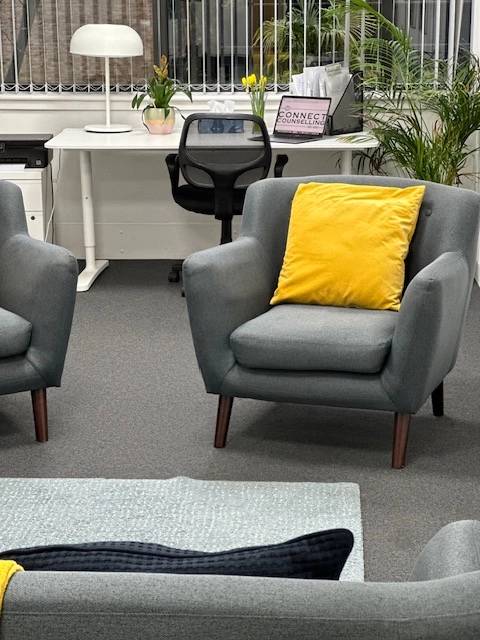
 In a world where navigating life's challenges can feel overwhelming, Counselling stands as a beacon of support and guidance for individuals seeking to explore their thoughts, emotions, and experiences. Rooted in empathy, collaboration, and empowerment, Counselling offers a safe and confidential space for individuals to address concerns, gain insight, and develop coping strategies. In this comprehensive guide, we delve into the essence of Counselling, exploring its various modalities, benefits, and considerations for those seeking support.
In a world where navigating life's challenges can feel overwhelming, Counselling stands as a beacon of support and guidance for individuals seeking to explore their thoughts, emotions, and experiences. Rooted in empathy, collaboration, and empowerment, Counselling offers a safe and confidential space for individuals to address concerns, gain insight, and develop coping strategies. In this comprehensive guide, we delve into the essence of Counselling, exploring its various modalities, benefits, and considerations for those seeking support.
Counselling, also known as talk therapy or psychotherapy, is a collaborative process between a trained counselor and an individual or group seeking support. Unlike traditional therapy, which may focus on diagnosing and treating mental health conditions, Counselling is often more focused on specific concerns, life transitions, or personal growth goals.
At its core, Counselling provides a supportive and non-judgmental environment for individuals to explore their thoughts, feelings, and behaviors. Through active listening, reflection, and skill-building exercises, counselors work with clients to identify challenges, set goals, and develop strategies for positive change.
Counselling encompasses a variety of approaches, each tailored to address specific concerns and preferences. Some common types of Counselling include:
Individual Counselling: Individual Counselling involves one-on-one sessions between a counselor and a client. It is ideal for addressing personal issues, exploring identity, and developing coping skills.
Couples Counselling: Couples Counselling, or marriage Counselling, focuses on improving communication, resolving conflicts, and strengthening relationships. It provides a safe space for couples to address issues such as intimacy, trust, and compatibility.
Family Counselling: Family Counselling involves working with families to address relational dynamics, improve communication, and navigate challenges such as parenting, divorce, or loss. It aims to strengthen family bonds and foster a sense of unity and support.
Group Counselling: Group Counselling brings together individuals facing similar issues or concerns in a supportive group setting. It offers opportunities for peer support, validation, and shared learning experiences.
Career Counselling: Career Counselling focuses on helping individuals explore career options, set career goals, and overcome barriers to success. It may involve assessments, skill-building exercises, and exploration of interests and values.
Trauma Counselling: Trauma Counselling helps individuals process and heal from past traumatic experiences, such as abuse, violence, or natural disasters. It focuses on safety, empowerment, and restoring a sense of control and resilience.
These are just a few examples of the many Counselling approaches available. The most suitable approach for an individual depends on their unique needs, preferences, and goals. A qualified counselor can help guide the selection process and tailor treatment to best fit the individual's circumstances.
Counselling offers a multitude of benefits for individuals seeking support for various concerns and challenges. Some key benefits include:
Emotional Support: Counselling provides a safe and confidential space for individuals to express their thoughts and feelings without judgment. Counselors offer empathy, validation, and support, helping clients feel understood and accepted.
Skill-Building: Counselling equips individuals with practical coping strategies, communication skills, and problem-solving techniques to navigate life's challenges more effectively. Clients learn to identify and challenge unhelpful thought patterns, regulate emotions, and cultivate resilience.
Insight and Self-Exploration: Through Counselling, individuals gain deeper insight into their thoughts, emotions, and behaviors, as well as the underlying factors influencing them. This increased self-awareness allows for personal growth, self-discovery, and the development of a stronger sense of identity.
Improved Relationships: Counselling can enhance interpersonal relationships by improving communication, empathy, and conflict resolution skills. Individuals learn to set boundaries, express their needs, and navigate relationship dynamics more effectively, leading to healthier and more fulfilling connections.
Stress Reduction: Counselling provides strategies for managing stress, anxiety, and other emotional challenges, leading to improved overall well-being and quality of life. Clients learn relaxation techniques, mindfulness practices, and stress-management skills to promote greater emotional balance and resilience.
Empowerment and Goal Achievement: Counselling empowers individuals to set and achieve personal and professional goals, overcome obstacles, and pursue fulfilling life paths. Clients gain confidence, motivation, and clarity as they work towards creating meaningful and fulfilling lives.
Local Harrold counselling sessions are available with myself Anne-Marie at Connect Counselling in Bedford. Just contact me and I can explain the next steps
Embarking on the journey of Counselling can feel intimidating, but it's important to remember that seeking support is a courageous and empowering step towards growth and healing. Here are some key considerations for those considering Counselling:
1. Finding the Right Counselor: Finding a counselor who is the right fit for you is essential for a positive Counselling experience. Consider factors such as the counselor's qualifications, areas of expertise, Counselling approach, and personality fit. Many counselors offer free initial consultations to help you determine if they are a good match for your needs.
2. Setting Realistic Goals: Before beginning Counselling, take some time to reflect on your reasons for seeking support and what you hope to achieve. Setting clear and achievable goals with your counselor can help guide the direction of your Counselling and track your progress over time.
3. Building Trust: Trust is the foundation of the Counselling relationship. Open and honest communication with your counselor is essential for building trust and establishing a supportive Counselling alliance. Remember that Counselling is a confidential space, and your counselor is there to support you without judgment.
4. Active Participation: Counselling is a collaborative process, and your active participation is key to its success. Be willing to engage in self-reflection, explore challenging emotions, and try out new skills and strategies between sessions. The more you invest in your Counselling, the greater the potential for positive change.
5. Monitoring Progress: Regularly check in with yourself and your counselor to assess your progress and adjust your Counselling plan as needed. Celebrate milestones and accomplishments along the way, no matter how small, and don't hesitate to communicate any concerns or challenges you may encounter.
Finding the right counsellor is essential for a positive Counselling experience. Here are some considerations to keep in mind when searching for a counsellor:
In conclusion, Counselling offers a transformative journey of self-exploration, growth, and empowerment for individuals seeking support for various concerns and challenges. Grounded in empathy, collaboration, and evidence-based practices, Counselling provides a safe and supportive space for individuals to address issues, gain insight, and develop coping strategies. Whether navigating personal struggles, improving relationships, or pursuing personal growth goals, Counselling offers a pathway towards greater emotional well-being, resilience, and fulfillment. By embracing the journey of Counselling with courage, commitment, and openness, individuals can embark on a transformative path towards healing, self-discovery, and a more meaningful life.
When you are ready to start looking seriously at working with a counsellor in Harrold or any of the surrounding areas such as Abbotsley, Ampthill, Bedford, Biddenham, Bletsoe, Blunham, Bromham, Campton, Cardington, Clapham, Clifton, Clophill, Colmworth, Cotton End, Cranfield, Dunton, Elstow, Eyeworth, Farndish, Felmersham, Flitton & Greenfield, Flitwick, Great Barford, Harrold, Haynes, Henlow, Hinwick, Ickwell, Kempston, Keysoe, Knotting, Lidlington, Little Staughton, Marston Moretaine, Maulden, Melchbourne, Millbrook, Milton Ernest, Newton Bromswold, Northill, Odell, Old Warden, Pavenham, Pertenhall, Podington, Potton, Pulloxhill, Ravensden, Renhold, Riseley, Roxton, Sharnbrook, Shefford, Shillington, Silsoe, Southill, St Neots, Stevington, Stewartby, Sutton, Tempsford, Thurleigh, Turvey, Upper & Lower Gravenhurst, Wharley End, Willington, . Then please contact me at Connect Counselling Bedford and I will be more than happy to talk you through your next steps to making your life better.